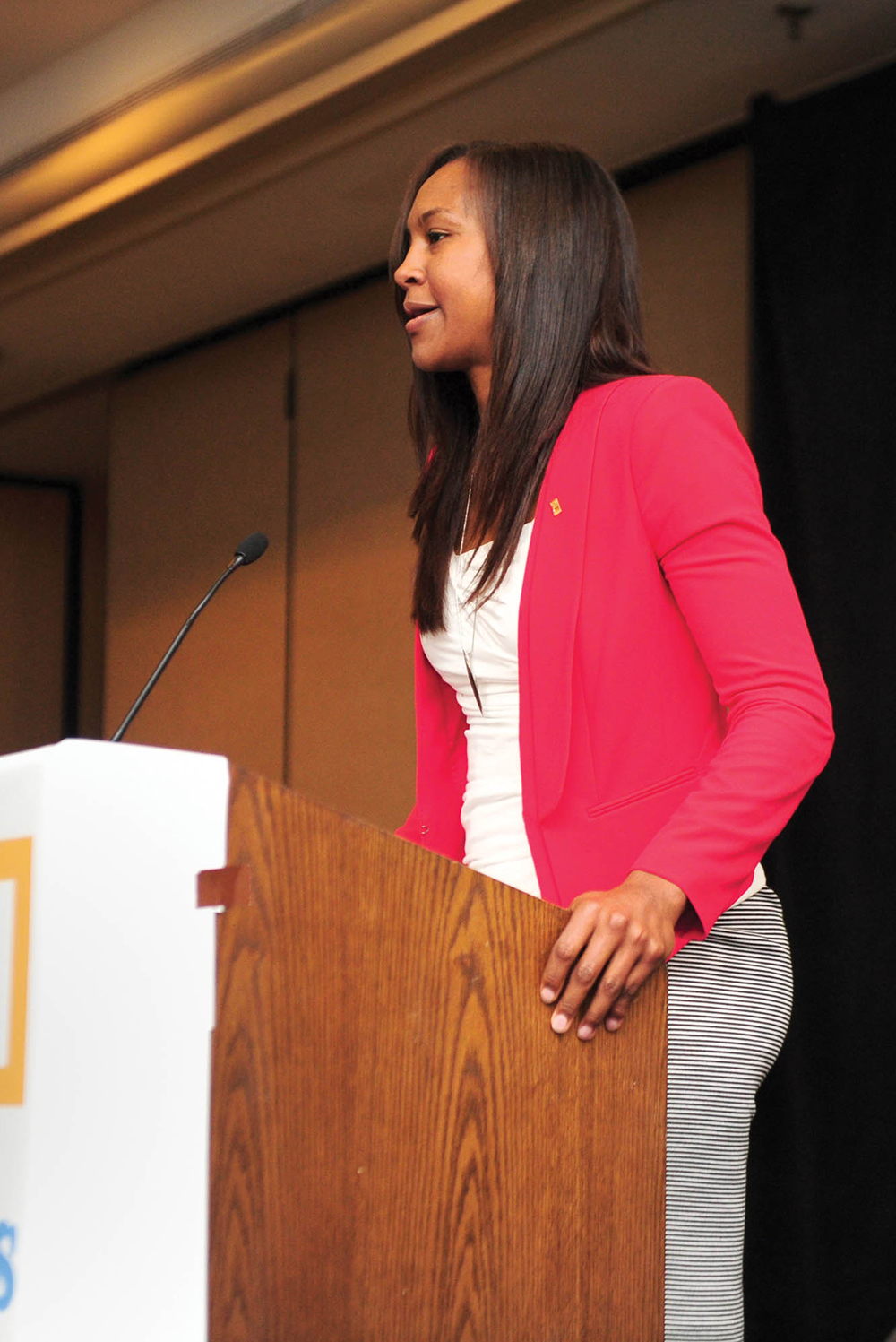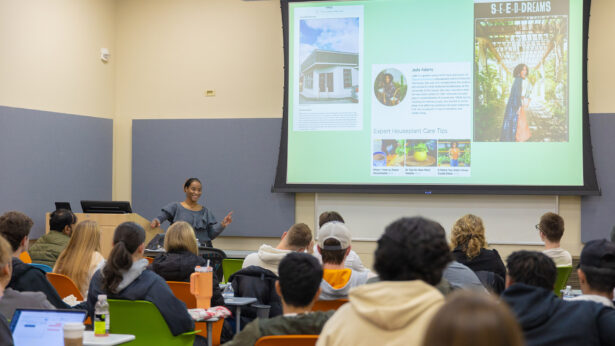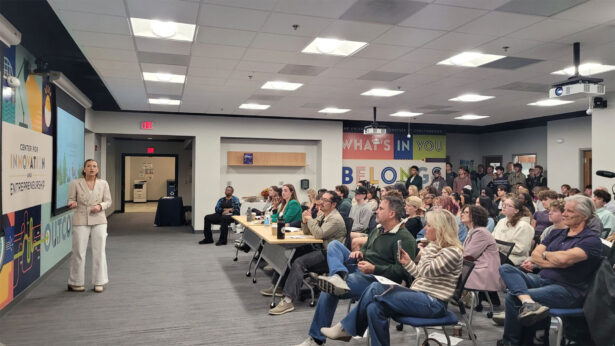
The difference between hearing and listening can be profound. And, for one of only nine women to win an Olympic gold medal, an NCAA championship and a WNBA championship, she discovered that difference at UT Knoxville.
When Tamika Catchings settled in Humes Hall in 1997, she, like most freshmen, felt anxious, excited and curious about her future. Her dream to attend UT had come true. She and her teammates—Semeka Randall, Teresa Geter and Kristen Clement— were at the top of their game, and they had Hall of Fame Coach Pat Summitt.
And, because she listened to Summitt, Catchings really began to hear.
After practice Catchings’ freshman year, Summitt called her over.
“She started asking me a series of questions: ‘When people can’t see that well, what do they need?’ And I answered, ‘Glasses,’” Catchings says.
Then Summitt asked, “When people walk with a limp, what do they need?”
Catchings replied, “A cane or something.”
Summitt continued the line of questioning until she brought Catchings to her point: “When people can’t hear, what do they use?”
“Oh, man,” Catchings thought.
Born with hearing problems, Catchings threw out her hearing aid in second grade and went without it. Summitt recognized Catchings had a hearing problem and called her mother to discover the facts.
“ ‘One day, you will be able to impact millions of people with your story, what you stand for and who you are. You will be able to make a difference in so many young people’s lives and even adults,’ ” Catchings says Summitt told her that day after practice. “I didn’t understand the magnitude of what she was saying then.”
Summitt wanted Catchings to wear a hearing aid, so she did. She also attended speech therapy.
Now the former Indiana Fever player, who won the WNBA championship and WNBA Finals MVP Award in 2012, the WNBA Most Valuable Player in 2011 and four Olympic gold medals, shares her story around the world.
“Pat saw something I couldn’t—me talking in front of people. And now that is my job. I travel around the country speaking and talking about my hearing problem.”
And they are listening.


